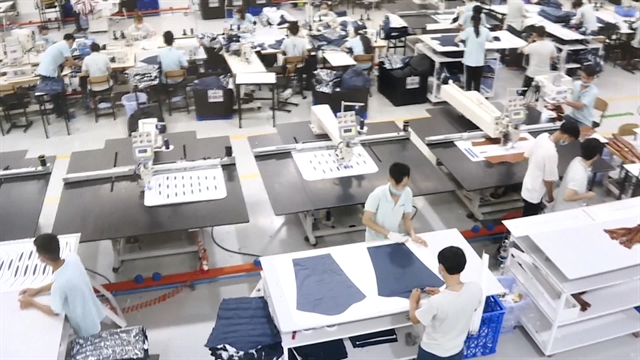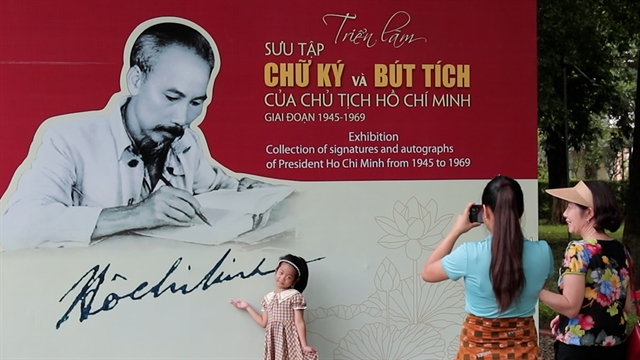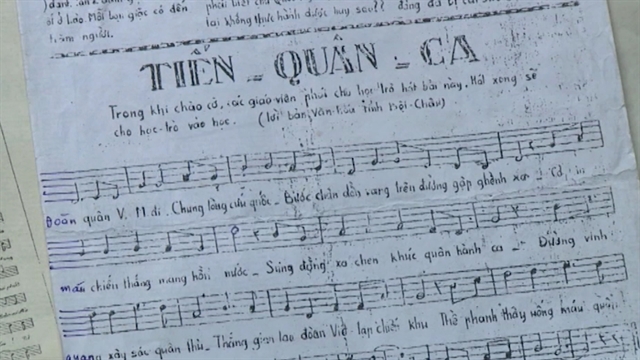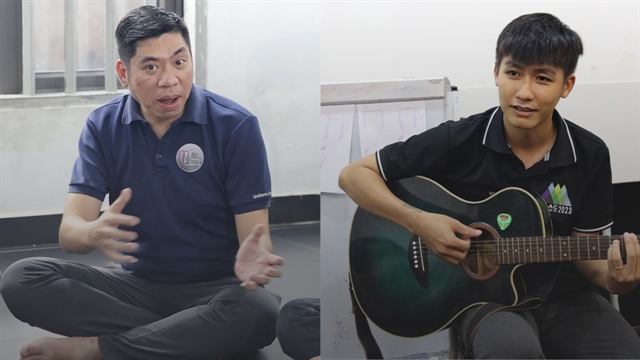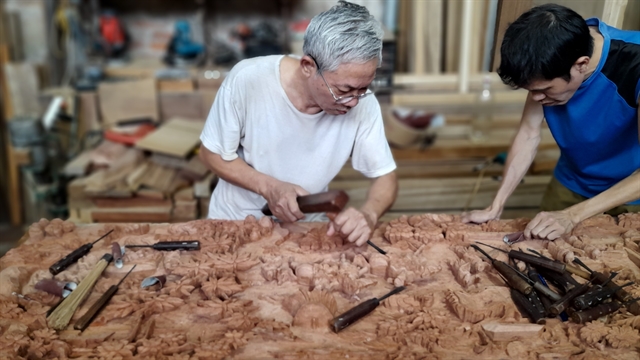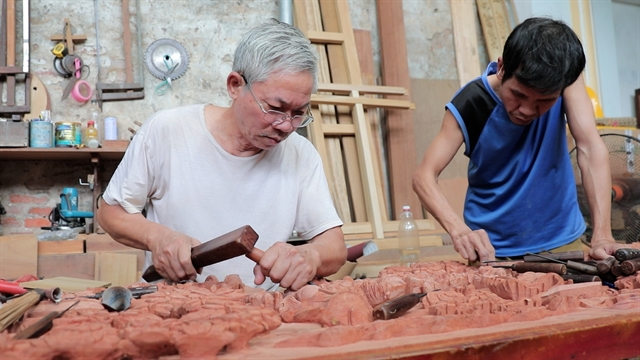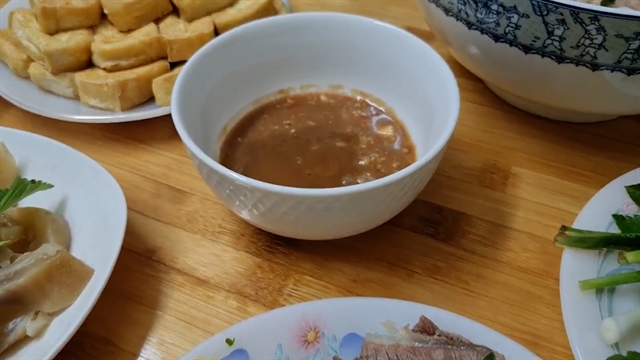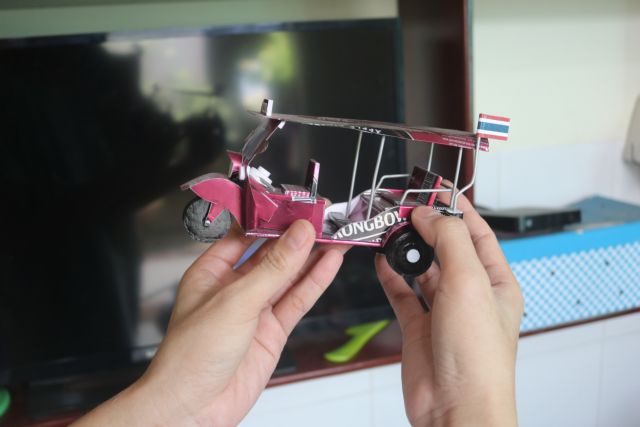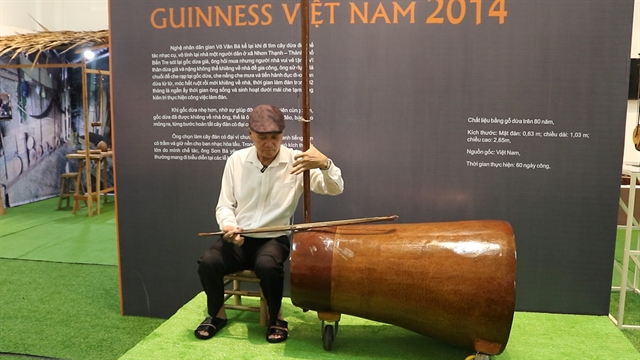
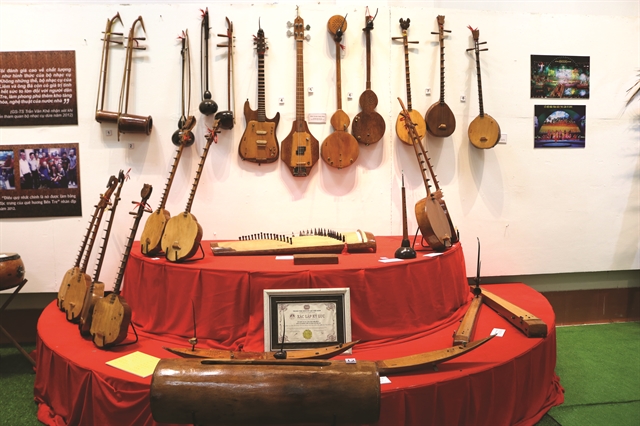 |
| A remarkable collection of folk musical instruments, consisting of 10 distinct types and a total of 27 instruments, which were crafted by Võ Văn Bá, is on display at the Bến Tre Province Museum. – VNS Photo Hồng Linh |
By Hồng Linh
Võ Văn Bá, an 81-year-old artist from Bến Tre, is famous for his work making musical instruments using materials from the coconut tree.
Bá was born into a family with a musical tradition. His father was a musician in the local bội singing troupe (Vietnamese classical operetta), which speaks to the intergenerational influence of music in his household.
During his childhood, outside of school hours, he joined his father and uncles in their performances throughout the region.
He received lessons about the traditional southern musical genre of đờn ca tài tử from his father and uncles, and he had the opportunity to interact with various types of musical instruments.
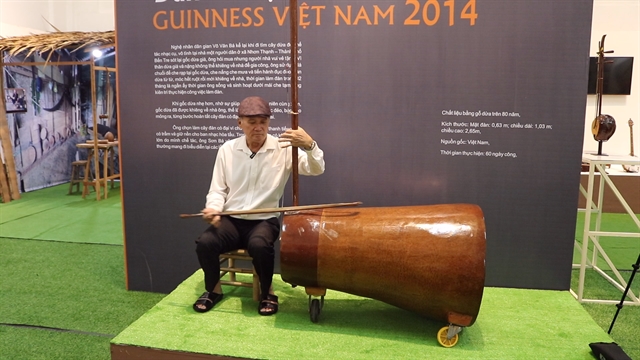 |
| Artisan Võ Văn Bá' plays the 'đàn cò', a traditional Vietnamese two-chord fiddle. The giant fiddle made of coconut wood by Bá has been recognized by the Guinness World Records Việt Nam. – VNS Photo Việt Dũng |
This early exposure to music not only laid the foundation for his journey as an artisan in crafting musical instruments but also ignited a passion for music within him.
He also once trained to work with electronics and radar for a period of time, but later on, he did not continue with that.
In 2011, with a small donation from a sponsor and two coconut trees from the local authority, he began his crafting work.
“The purpose of making these musical instruments is to pay tribute to coconut trees, the symbol of Bến Tre Province. It is because trees played a major role in my life, the lives of the people of Bến Tre, and even during times of war,” he said.
“I have seen lots of people making handicraft products from coconut palms, so with the experience of making musical instruments before, I came up with the idea to make instruments using materials from coconut trees,” he said.
However, crafting traditional instruments from coconut wood was not easy.
Unlike other types of wood commonly used for instruments, coconut wood's lack of flexibility, stiffness, and proneness to fractures make it particularly challenging to work with.
He said using coconut wood to make instruments is much more challenging, but it's his passion that led him to continue with coconut wood.
The distinct nature of coconut wood is fragile when exposed to sunlight, making it susceptible to breakage and deformation.
Different parts of the tree produce varying tonal qualities – the base section yields a deep and rich tone, while the upper section produces a bright and vibrant sound.
He said that coconut trees are best suited for making musical instruments when they are around 70 years or older. At this stage, they display a beautiful reddish hue.
If the tree is too young, it remains tender and susceptible to termite damage. On the other hand, if the tree is too old, nearing the age of 100, it becomes dark and loses its aesthetic appeal due to the ageing process.
He has also expanded the materials that he uses for making instruments to include various coconut components, such as coconut husks, shells and fibres.
For instance, he uses coconut husks to make the body of an instrument. First, he selects thoroughly dried coconuts. Next, he cuts off the top part, hollows out the husk, and then carefully removes the fibrous interior, leaving only a thin layer about 0.5-1cm thick attached to the coconut husk.
This husk layer is then treated, coated with various types of paint and anti-fungal adhesive, before being assembled with other components to create a complete musical instrument.
.png) |
| Bá makes a sound box from a coconut shell. – VNS Photo Việt Dũng |
In addition to his expertise in achieving the appropriate thickness and density from coconut wood for making instruments, he also combines several other materials such as buffalo horn and snake skin to overcome the limitations faced by coconut wood in the fabrication process.
Besides crafting traditional Vietnamese musical instruments like the đàn cò, đàn gáo, đàn kìm, đàn nhị, đàn tranh, and đàn bầu, Bá has also created unique and innovative musical instruments.
One of these distinctive instruments is an instrument that combines elements from five types of musical instruments including guitar, two-chord fiddle, and a microphone to sing.
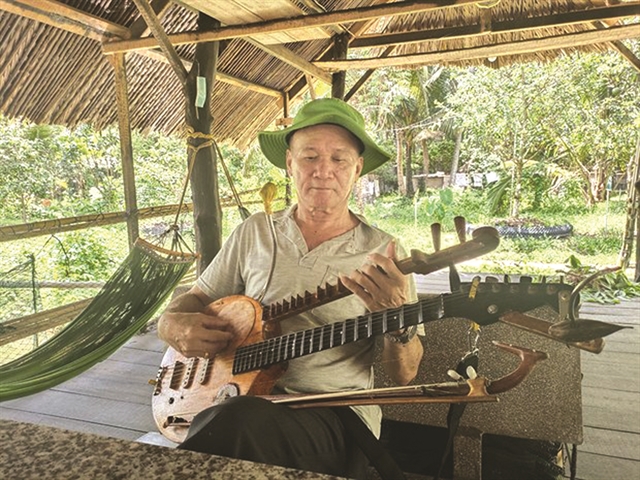 |
| Artist Võ Văn Bá with his creation, an instrument that blends elements from five different types, including guitar, two-chord fiddle, and a microphone for singing – VNS Photo Huỳnh Phúc Hậu |
One of the ethnic musical instrument collections crafted by Bá comprises 10 distinct types, consisting of 27 instruments that meet the standards of both aesthetic form and sound quality, thus earning a Vietnamese record.
Bá has donated more than 100 musical instruments made from coconut wood to the Bến Tre Provincial Museum in order to preserve the cultural heritage of his hometown and ensure that his unique instruments are accessible for generations to come. VNS
